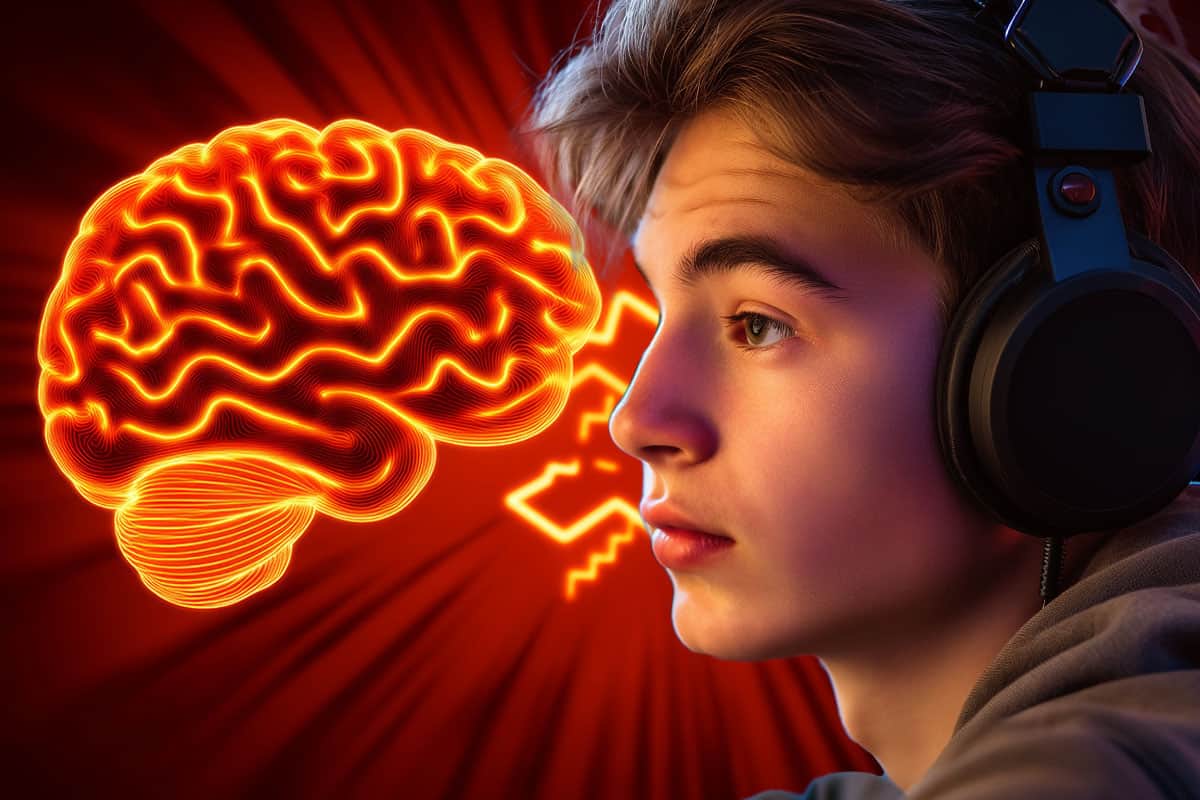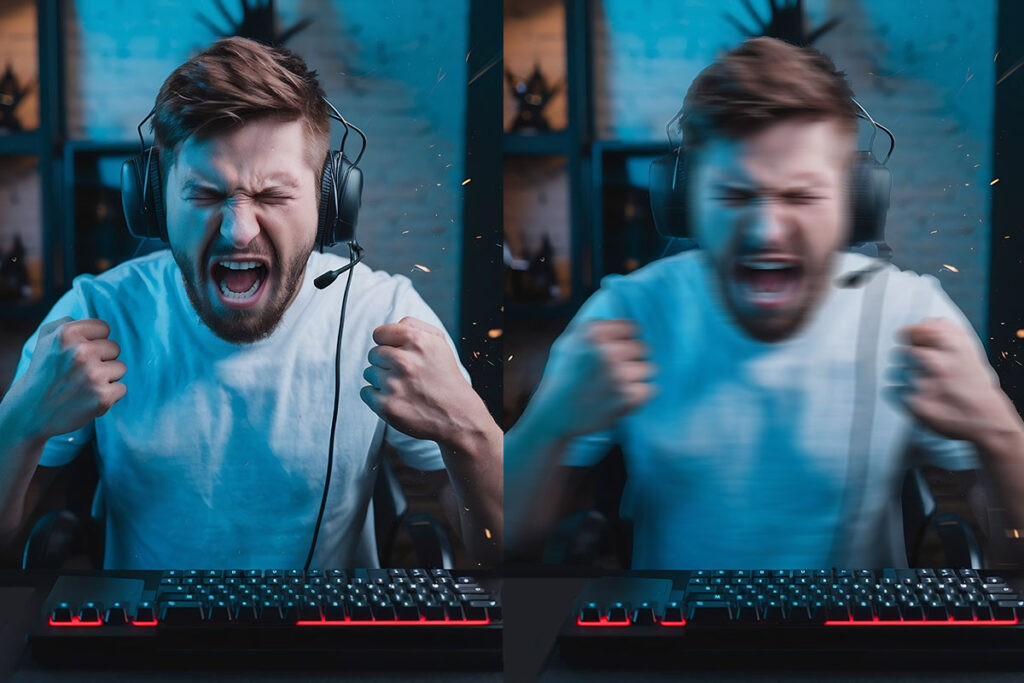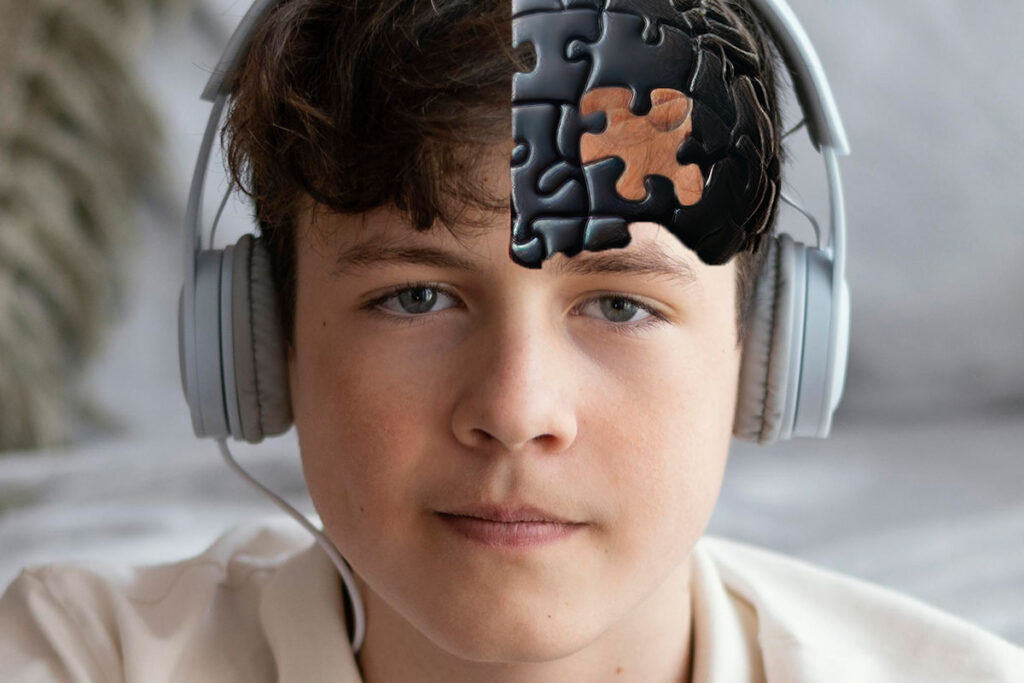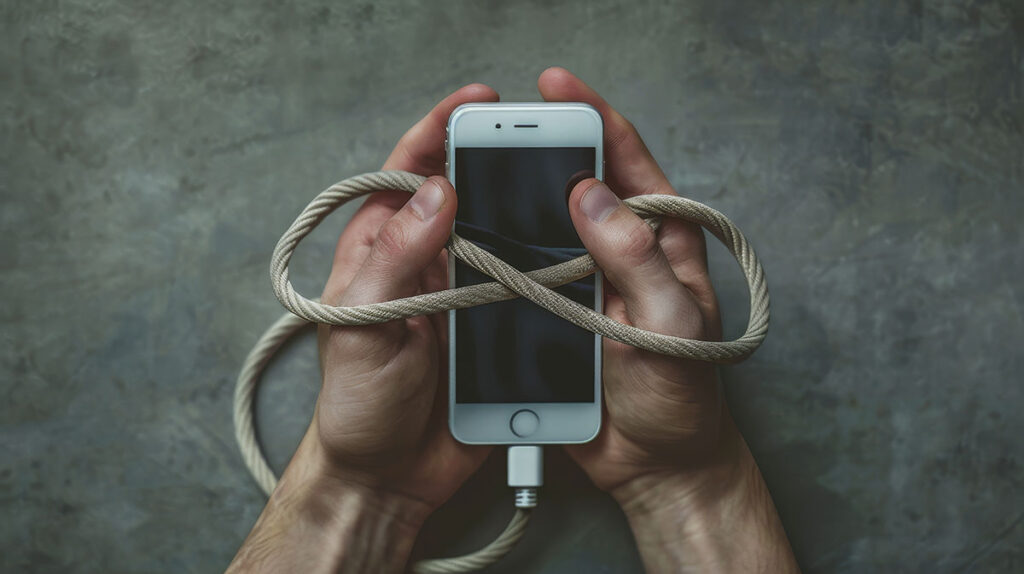
Is Digital Dementia Caused by Gaming and Screen Time?
Technology dominates 21st century life. It’s now easier than ever to communicate, access information, and be entertained. But constant engagement with digital devices can have a negative impact on brain function and behavior. In fact, the cognitive decline linked to screen overuse is sometimes referred to as ‘digital dementia’.
In this article, we explore the meaning of this term and explain the importance of recognizing and addressing the impacts of screen addiction on individuals and families.
Digital dementia meaning

Digital dementia – also known as digital amnesia – is a non-medical term that’s sometimes used to describe cognitive impairment linked to excessive screen time.
As well as causing dementia-like changes to the brain, the overuse of technology may even increase the risk of dementia.
What are digital dementia symptoms?

So, what is the number one trigger for dementia behavior and what are the signs? The condition can manifest in different ways depending on the person involved, the devices they use, and how many hours a day they spend in front of a screen. However, common digital dementia symptoms include:
- brain fog
- memory issues
- forgetfulness
- difficulty concentrating
- struggling to learn
- problems with multi-tasking
Digital dementia may also cause mental health issues, such as sleep disorders, depression, and anxiety.
Furthermore, the frequent use of digital devices often leads to decreased face-to-face interactions and social isolation, which can exacerbate the symptoms. And, like dementia, cognitive impairment can worsen over time if online activities start to dominate an individual’s life.
What causes digital dementia?

All parts of the brain need stimulation in order to function optimally. But when someone plays video games, scrolls social media, or watches YouTube videos for hours on end, their cognitive health can suffer.
Interestingly, the left side of the brain can develop more through using the internet because it focuses on analytical and logical skills such as searching, selecting, assessing, and using information. Whereas the right side of the brain—which is responsible for many functions including memory, concentration, and attention span—gets underused, so it may fail to develop properly.
For instance, before smartphones, we had to remember phone numbers, appointments, meetings, deadlines, etc. However, nowadays our smartphones and digital calendars store this information and send alerts. We use our brains differently, and our memory and recall can suffer as a consequence.
What gaming does to the brain
At Game Quitters, we believe that balance is key for healthy brain function. For example, playing video games in moderation can actually enhance cognitive skills by improving memory, developing problem-solving skills, and encouraging creativity.
But long and frequent gaming sessions can have a negative impact on the brain because dopamine (the feel-good hormone) triggers structural changes in the brain’s reward system.
As a result, players need to game more and more to experience the same ‘high’; otherwise, they become dopamine deficient, which can negatively impact memory, focus, motivation, and mood, and in some cases lead to gaming disorder.
Why digital dementia can be an unhelpful term

As experts in screen addiction and gaming disorder, we dislike terms such as ‘digital dementia’ or ‘digital heroin’ being used to incite fear about the dangers of technology. They’re sensationalist and potentially harmful because people will struggle to believe that screen addiction is in the same category as dementia or heroin addiction.
On the plus side, these terms draw attention to the perils of problematic screen use and video game addiction, particularly their effects on the brain. But they may be dismissed as moral panic and hysteria, causing people to underestimate the seriousness of screen addiction. For example, comparing giving a child an iPad to giving them a class A drug is an exaggerated and unhelpful analogy.
The wide-ranging impacts of screen addiction
It’s important to recognize and address the full impact of screen and gaming addiction on individuals and families, rather than get caught up with the latest buzzword or phrase.
Digital addiction happens when technology use is so compulsive that it starts to negatively affect all aspects of a person’s life, not just memory issues and concentration but their work or education, relationships, health, and well-being. It can put a huge strain on the family dynamic, often causing conflict and a breakdown in communication. But there are ways to get screen use and gameplay under control.
How to treat digital dementia
Even though we’re not keen on the term digital dementia, it’s useful to look at how to address the symptoms of screen and gaming addiction that relate to memory issues and short attention span. So, if you’re wondering, ‘Is digital dementia reversible?’ or ‘How do you treat digital dementia?’ here are some steps you can take to mitigate its damaging effects.
Set limits on screen time
Check out these screen time guidelines to help you decide how long each family member should be spending online each day. You can then set a time limit on the devices you use. It’s important for parents to model healthy screen time habits and offer alternative, non-screen-based entertainment to children.
Establish tech-free zones
To make it easier to stick to screen time limits, ban digital devices from certain areas of the home, such as bedrooms, bathrooms, or the dinner table. This will encourage more face-to-face interactions, which should help improve family relationships.
Fix your sleep schedule
Rather than mindlessly scrolling through social media or playing just one more game, turn off all screens at least an hour before bed. Getting a good night’s sleep will help to repair, restore, and re-energize the brain, improving memory and concentration the next day.
Get more active
Incorporating regular activity into your daily routine will not only keep you and your family away from screens, but will also boost your physical and mental health. Doing something you enjoy will improve your mood and have a positive effect on your brain health. Use our hobby tool for inspiration.
Exercise your brain
Certain activities like crosswords, sudoku, jigsaw puzzles, memory games, reading, learning a language, or playing an instrument can engage the brain in new ways and lead to improvements in cognitive function. Some of these activities are available online – make sure you find an offline version.
Try a digital detox
A digital detox involves removing smartphones, computers, tablets, gaming consoles, and other devices from your life for a certain period of time. This will help reset your brain and allow you to engage in activities you used to enjoy before screens stole your attention. The goal is not to stop using technology forever but to learn how to engage with it in a more intentional way.
Need help with technology addiction?

At Game Quitters, we see the effects of screen and gaming addiction in our coaching and community work every day. It’s our mission to give individuals and families the tools to get their lives back on track.
If you’ve tried the above tips without success, please get in touch. Our specialist coaching programs for individuals and families are designed to help you or a loved one regain balance with technology and get joy back in your life.
Take the first step today – book a Gameplan call.
During the call, we’ll discuss your current situation and see whether you’re a good fit for our Respawn or Reclaim programs. We also have a wide range of free resources on the website to help you, including our Parent Facebook Group or Discord community.
